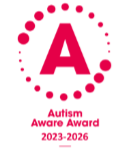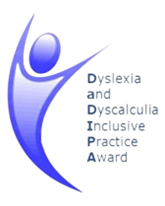
English – Reading

Intent
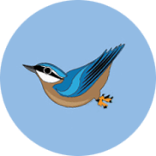
Implementation
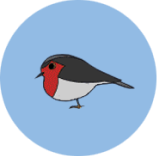
Impact

1. Intent
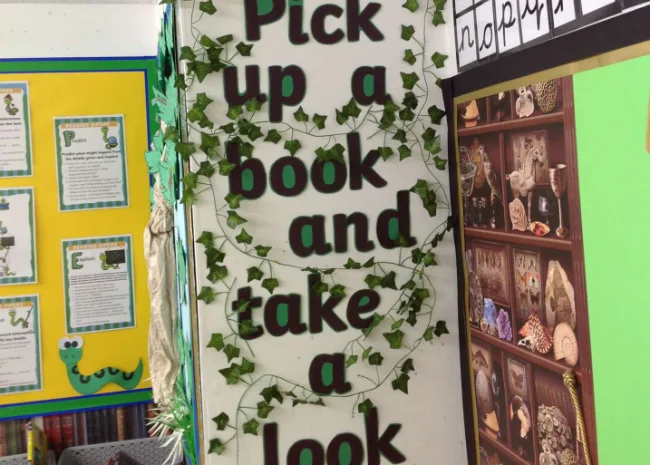
Phonics
Arunside School uses an accredited systematic synthetic phonics instruction programme, which is validated by the DfE. It is called ‘Schofield and Sims – My Letters and Sounds’. More information about our scheme can be found here.
Phonics is taught daily in EYFS and Key Stage One, in short focused sessions. There are also small groups of children in Key Stage 2 who receive daily phonic teaching. These children have been identified through school assessments.
Reading
At Arunside Primary School, we prioritise the teaching of reading both as a key component of our English provision and one which unlocks opportunity in all other subjects. We believe that all pupils should have the opportunity to be fluent, confident readers who are able to successfully comprehend, enjoy and understand a wide range of texts.
We want pupils to develop a love of reading, have a good knowledge of a range of authors and be able to understand more about the world in which they live through the knowledge they gain from texts. We aim to develop positive attitudes towards reading so every child thinks of themselves as a reader and develops a love of the written word in all its various forms. We wish to create a community of readers that share, enjoy and promote reading as a skill and pastime and to encourage a home-school partnership which enables parents and carers to understand how to enhance the skills being taught in school through good quality texts.
We believe that reading ‘opens the door’ to learning, enabling children to access a wider curriculum. Children who read a lot will go on to become lifelong learners.
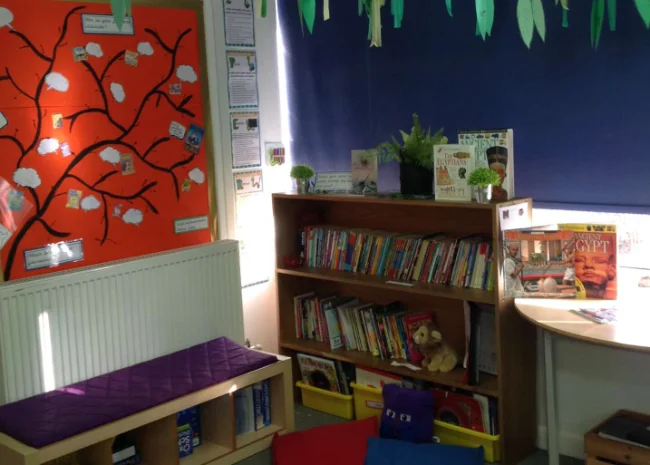
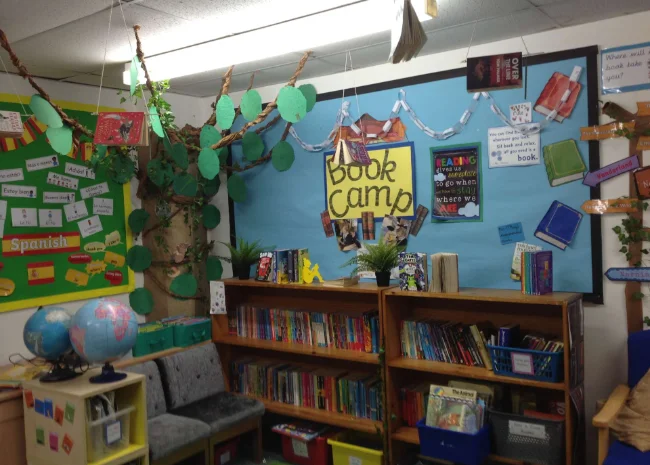
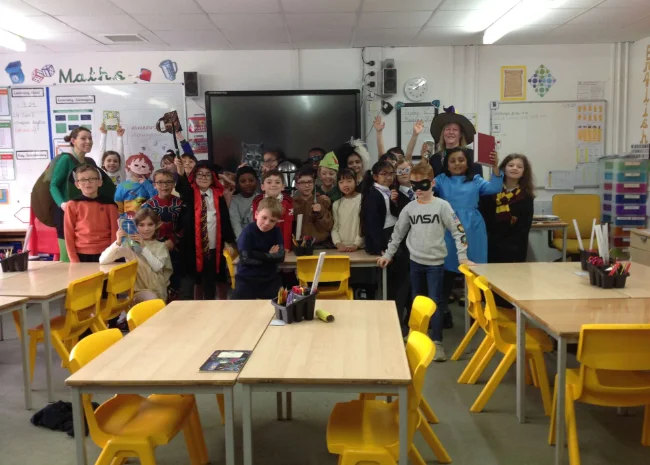
2. Implementation
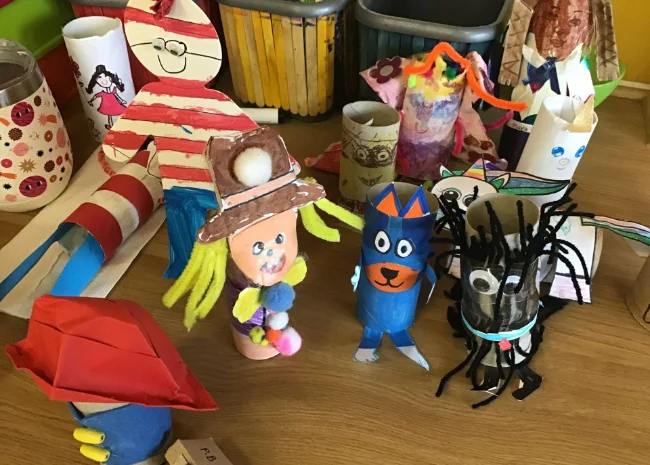
Phonics
We begin Phase 1 phonics (listening skills etc) during settling sessions in EYFS and Phase 2 begins once the children have started school full time, this continues with Phase 3 and Phase 4 in EYFS. Phase 5 is taught during Year One and at the start of year 2 and then moved to Phase 6, incorporating the curriculum spelling rules and patterns.
We teach the children in groups across EYFS and Key Stage One. Our teaching assistants deliver some phonics groups, this allows directed, small group teaching to allow the children to make the best progress. Lessons are interactive and include a range of activities, such as writing, games and modelling. All lessons begin with a revision of previously taught sounds. Children are regularly assessed during the phonics lessons. In EYFS, Year 1 and Year 2 children are assessed regularly so that we can ensure that they are making progress. Children causing concern are quickly identified. Assessments of phonics sounds reflect when these have been taught. There are regular informal assessments of phonics sounds and skills during the lessons.
Reading
At Arunside reading is an important and integral part of all children’s learning and progress. Reading lessons at Arunside are delivered in a variety of ways; including but not limited to, group teaching, whole class, close text analysis, discreet phonics teaching, shared, peer and 1:1 reading. In addition to this every class has texts read to them throughout the year. This helps to promote reading as an enjoyable pastime and something that should be valued and treasured. Through whole class teaching allows in-depth discussions of high-quality books daily for every child. We emphasise the importance of books and literature, enabling our children the opportunities to become confident, happy and enthusiastic readers and writers.
All children take part in reading lessons, led my class teachers and supported by classroom assistants. This ensures that all children receive the support and challenge they need. We use a range of quality texts during our reading lessons and use VIPERS questioning as a tool to ensure the children are taught the range of question types. There is a big emphasis within our school for children to have wide language, comprehension and broad vocabulary development. These reading lessons focus on the various reading domains to fully explore the children’s understanding of what they read, through a range of high-quality texts.
As the children progress through the school, they are introduced and taught how to use point, evidence and explain through high quality texts, subjects, topics and comprehensions. This is a method for answering questions about a subject. It involves stating a point, providing evidence from the text and explaining their argument, providing them with a solid grounding for secondary school. Children are encouraged to talk enthusiastically about reading and writing and understand the importance of this subject. They are also provided with fun activities to talk about books and authors that they have enjoyed, and make reading recommendations for their peers.
Whole-school Reading Scheme
At Arunside, we have a range of fiction and non-fiction decodable reading books linked to our phonic programme ‘My Letters and Sounds’. These are used whilst the children are being taught phonics. Once the children have secured their phonics they move onto colour band books. They undertake a benchmarking assessment which determines the correct colour band for them. Once the children have read the highest colour band they move on to ‘Early Free Reader’ books and then they have a free choice of what to read.
Whole school events
We celebrate National and World Poetry Day, Roald Dahl Day and World Book Day. We also plan whole school competitions such as ‘Picture Book competition’, ‘sponsored reads,’ and hold ‘book battles’ and reading challenges. These all unite our school and its community.
3. Impact
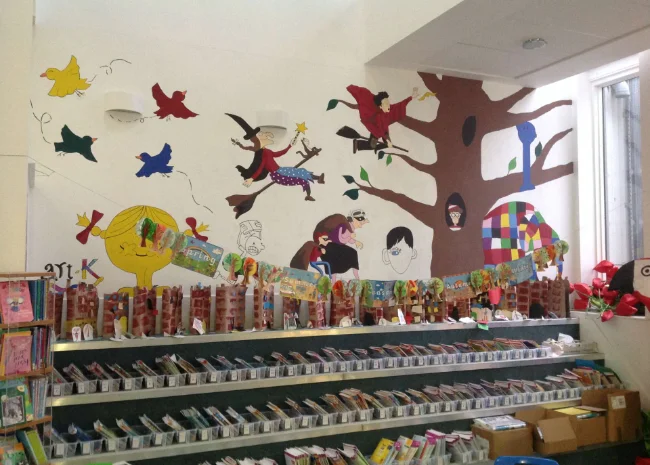
By the time children leave Arunside they will:
- Pupils will be enthusiastic and motivated readers who are confident and will enjoy reading a wide variety of genres and text types
- Pupils will be inspired by literature and will read for pleasure.
- Pupils of all abilities will be able to succeed in all reading lessons
- Pupils will be able to confidently using their phonics to decode words
- Pupils will be able to read fluently with a secure understanding of what they have read
- Pupils will have a good knowledge of a range of authors
- Pupils will be ready to read in any subject in their forthcoming secondary education
- Parents and carers will have a good understanding of how they can support reading and home, and contribute regularly to home-school records
- There will be no significant gaps in the progress of different groups of pupils (e.g. disadvantaged vs non-disadvantaged)
- Autumn term Reading Newsletter –
- https://arunside.school/wp-content/uploads/2025/12/Reading-Newsletter-Autumn-term-2025.pdf
https://arunside.school/wp-content/uploads/2025/12/Year-4-5-and-6-Book-Review.pdf
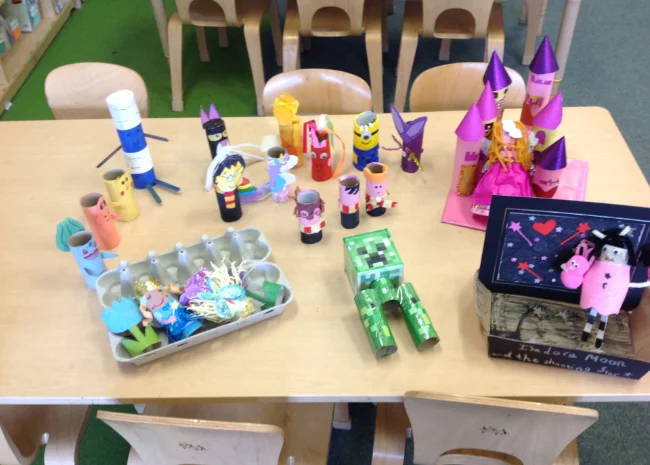
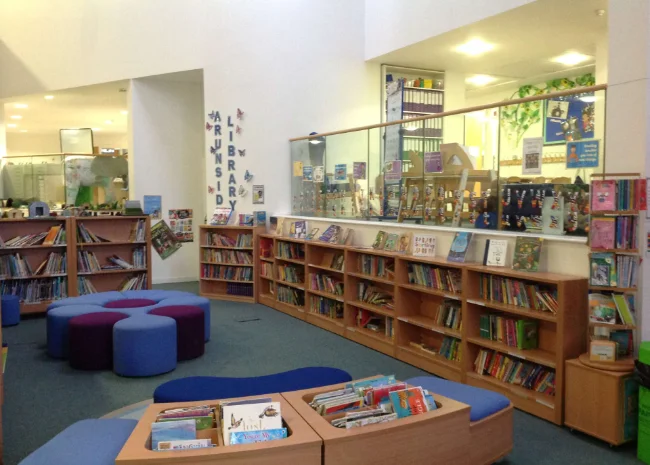
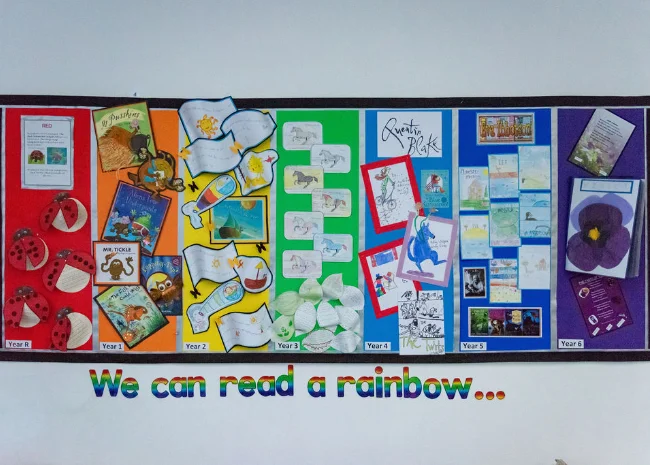
Please click on the link below to see our whole school long term plan for reading for each year group, including references to the National Curriculum.
https://arunside.school/wp-content/uploads/2024/11/Whole-School-English-LTP-2024-25-1.pdf
Phonics Presentation 2024
https://arunside.school/wp-content/uploads/2025/12/Phonics-PPT-for-Parents-November-2025.ppt
Christmas Reading Challenges
https://arunside.school/wp-content/uploads/2025/12/Reading-Challenge-Early-Years.docx
https://arunside.school/wp-content/uploads/2025/12/Reading-Challenge-Year-1.docx
https://arunside.school/wp-content/uploads/2025/12/Reading-Challenge-Year-2.docx
https://arunside.school/wp-content/uploads/2025/12/Reading-Challenge-Year-3.docx


